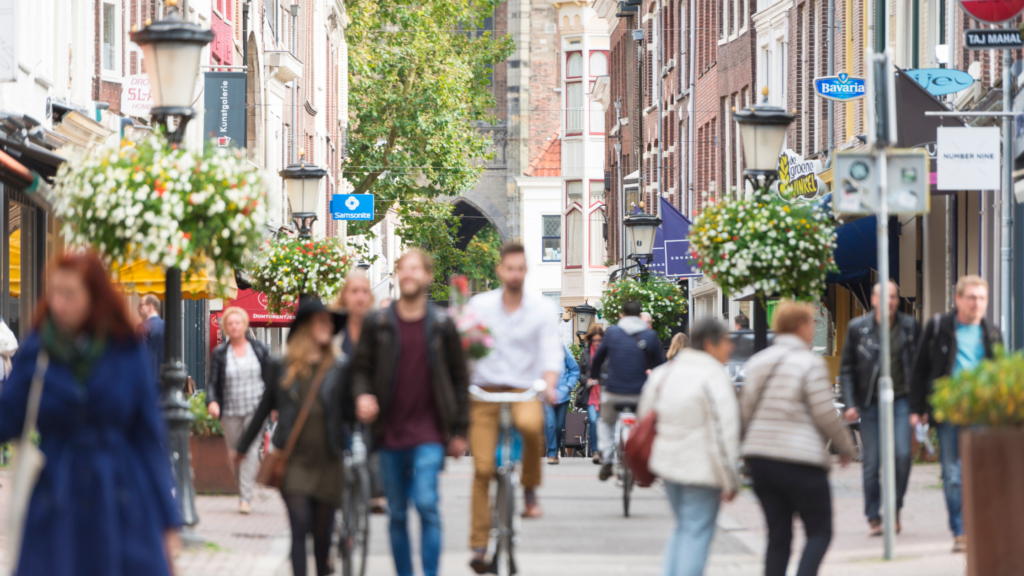How to Handle Different Travel Personalities in Your Group
April 3, 2025
Read MoreInternational tourism is skyrocketing. The U.S. State Department issued a record 24 million passports in 2023 and 2024 applications are on track to surpass that number. In fact, the Department is taking steps to establish six new processing agencies and testing online passport renewals to help meet the surge in demand.
A recent study by Going shows that 54% of respondents plan to travel abroad in 2024. Of these travelers, 83% are heading to Europe.
So, what’s responsible for the uptick in international travel? And why is anti-tourism also on the rise? Let’s explore the good, bad, and ugly of the latest anti-tourism movements – and what we can do to help!

The increase in global travel correlates directly with the not-so-distant pandemic. As we tiptoed out of our homes and pandemic-related mandates lifted, the desire for “revenge travel” was (and continues to be) strong. People have a burning desire to see the world – and a strong American dollar to back up that desire.
The U.S. dollar currently ranks 10th as the strongest currency in the world. That means our dollars will go further when we travel.
On a recent trip to Greece, my husband and I were astonished that our family of four could eat lunch for $35. That same lunch at home would cost at least $45 (not including tip.)
With our renewed need to explore the world and the financial means to do it, Americans are creating an economic boom in Europe.
Tourism is responsible for a hefty 10% of the European Union’s gross domestic product. Tourism also accounted for 71% of Spain’s growth in 2023.
In Lisbon, Portugal, tourists have dumped so much money into the local economy that the Mayor slashed local income tax for residents. (Side note… this also comes with a tourist tax that has jumped from one to four euros since it was introduced in 2016.)
Unfortunately, this influx of vacationers has created a significant over-tourism problem and a surge in living costs for locals in tourist destinations. As a result, residents are experiencing a housing crisis and diminished quality of life.
Property owners, for example, are cashing in on the craze and driving up the cost of housing for locals.
On a recent trip to Croatia, our guide shared that she can no longer afford to live in the home where she’s lived and raised her children for the last 10 years.
Her landlord raised rents from €400/month to nearly 4X that amount. If tenants can’t pay, they are evicted and the space is used for short-term tourist housing.

In addition, many locals believe that with so many tourists in their towns, their natural and cultural heritages are at risk. This has led frustrated residents to demand interventions.
Which leads us to
The pushback to increases in tourism have gotten…let’s just say more aggressive. Many destinations like Venice, Barcelona, Brussels, Prague, and Vienna are following Lisbon’s lead and implementing tourist taxes.

Amsterdam recently announced a ban on new hotels to help curb its tide of tourists.
Anti-tourism protesters are lashing out against the unsustainability of too many tourists by slashing bike and bus tires and yelling at tourists to “go home.” In July, destinations across Spain sported signs encouraging tourists to leave and even squirting them with water.
As the increase in European travel plays out over time, we can be proactive in the short term. We can take steps to help minimize the impact of over-tourism and be more responsible travelers.
We recognize that travel is an essential part of understanding the world in which we all live – so it’s important to explore new places and meet new faces. But it’s also critically important to remember that while this might be your vacation, it’s someone else’s home.

April 3, 2025
Read MoreMarch 20, 2025
Read MoreMarch 6, 2025
Read MoreFebruary 20, 2025
Read MoreJanuary 9, 2025
Read More